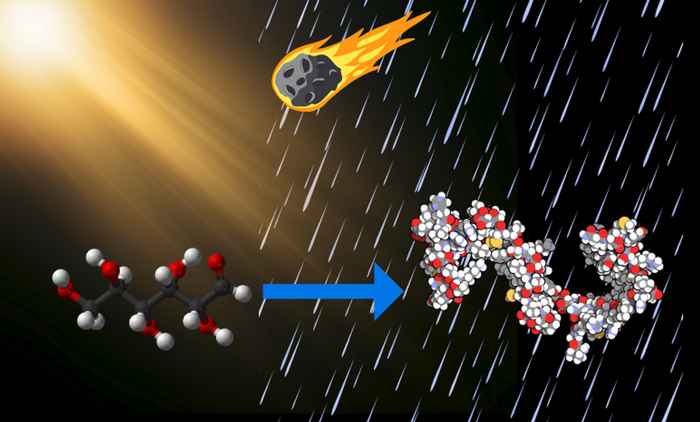PRELIFE funding for Annemieke Petrignani
19 November 2024
The origin of life is one of science's greatest unsolved puzzles. Several theories exist, but there is no consensus. The PRELIFE consortium is built on an interdisciplinary approach of the question 'How and under what conditions did life arise on Earth, and how common are these conditions in the universe?' Led by Prof. Inge Loes ten Kate (Utrecht University and Anton Pannekoek Institute for Astronomy, UvA), it involves scientists from a variety of fields such as astronomy, biology, chemistry, computer science, earth and planetary sciences, mathematics, physics, and education science. Teachers, schoolchildren and the public will be involved through educational projects and collaborations with artists and museums.
Warm-little-pond scenarios

Dr Annemieke Petrignani of the Astro Chemistry laboratory will lead one of sixteen PRELIFE projects titled ‘From building blocks to polymerisation on water-rich worlds’. By mimicking warm-little-pond scenarios in the lab, she wants to study key differences in the organic inventory in water-rich environments that contain minerals and are subject to off-world delivery and off-equilibrium photochemistry. This research will be carried out in collaboration with Wouter Roos (University of Groningen), S. Stephanie Cazaux (Delft University of Technology), Sonja Geilert (Utrecht University), Inge Loes ten Kate (Utrecht University), Nathalie Katsonis, Helen King (Utrecht University), Niels Ligterink and Sandra Potin (Delft University of Technology), Rick Quax (University of Amsterdam), and Mark van Zuilen (Naturalis Biodiversity Center). Petrignani is also involved as partner in six other projects that explore the emergence of building blocks and functionalities of life and their key conditions.
Dutch Research Agenda
The full consortium name is “PRELIFE – Pathways, Reactions, and Environments” and it is funded by the Dutch Research Council NWO within the programme line “Research along Routes by Consortia” (ORC) of the Dutch Research Agenda (NWA). The basis of the NWA programme is formed by questions from Dutch citizens to science. The Dutch public thus directly determined the nature and scope of research themes which is unique in the Dutch science arena. In the NWA, governments, researchers, civil society organizations and citizens develop and use knowledge together to achieve scientific and societal impact. And through science communication, knowledge is shared in society to increase involvement and trust in science.
In the current funding round a total of nine consortia have been awarded funding, each centered around a theme from the NWA routes. These themes range from a new approach to biodiversity restoration in livestock farming areas to the consequences of scaling up offshore wind farms. PRELIFE is part of the NWA theme “Origins of life on earth-like planets and moons” which led in 2017 to the establishment of the national Origins Center as a knowledge center that combines all Dutch expertise in this field.